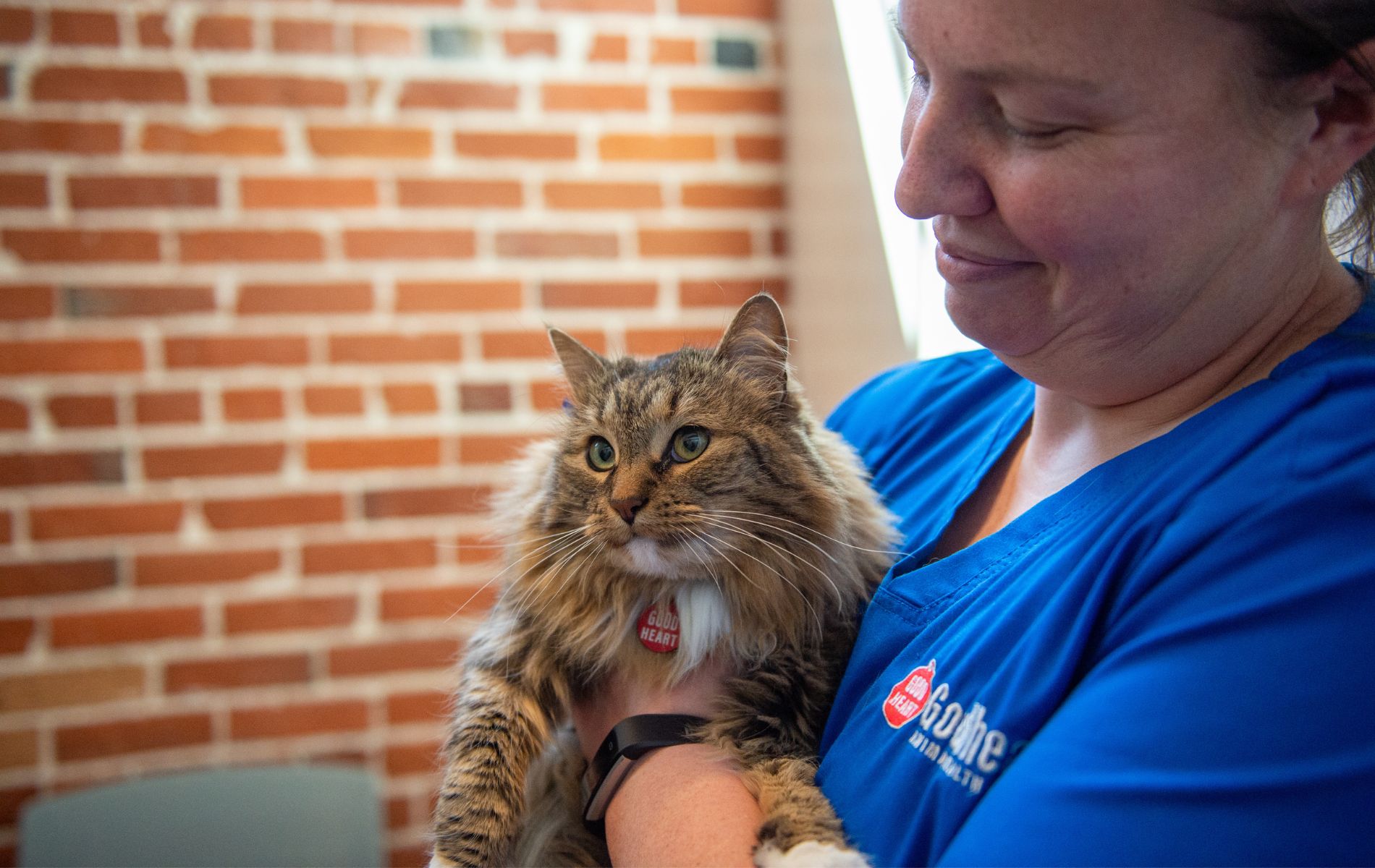3.5 minute read

Vaccines are an important piece of your pet’s wellness plan to prevent certain diseases.
Goodheart customizes vaccine plans for each pet.
We’ll chat at your pet’s yearly check-up. Then, we recommend only the vaccines your pet needs based on your lifestyle and environment.
Our advice is conservative and based on common sense. Vaccines are an important piece of your pet’s wellness plan to prevent certain diseases.
We’ve used research and our long-time experience to create the following guidelines for dogs and cats:
Dogs: Core vaccines are Rabies and DHPP to protect against:
- Distemper, which causes respiratory and neurologic disease. It is often fatal.
- Adenovirus, which causes liver disease or hepatitis. It can be fatal.
- Parainfluenza, which causes respiratory disease.
- Parvovirus, which causes gastrointestinal disease. It’s often fatal.
Cats: Core vaccines are Rabies and FVRCP to protect against:
- Rhinotracheitis, a herpes virus, which causes respiratory disease. It can be severe.
- Calicivirus, which causes respiratory disease. It can be severe.
- Panleukopenia, a parvovirus that causes gastrointestinal disease. It is often fatal. (This was called “feline distemper” in the past.)
We recommend a few other vaccines:
- Cats: We recommend all kittens get the initial Leukemia vaccine series. We give a booster at their first adult wellness visit to solidify their immunity. Outdoor cats (or cats who sometimes go outside) should stay current on this vaccine. Leukemia spreads through bodily fluids and is fatal. There is no treatment for feline leukemia. The vaccine is very safe, so we recommend vaccinating any at-risk cats to protect them.
- -Dogs: We recommend the Bordetella (kennel cough) vaccine for many dogs. Although not usually life-threatening, kennel cough is uncomfortable for dogs who get it. Since Central Texas is such a dog-friendly place and many of our patients have busy social lives, we recommend this vaccine. Many boarding and doggy daycare facilities require it.
- Dogs: We recommend the Leptospirosis vaccine for most dogs. We see this potentially fatal disease at higher rates than other parts of the country. Also, leptospirosis is a human health concern.
- Dogs: The canine Flu vaccine is beneficial for dogs who spend a lot of time around other dogs. For example, doggy daycare, boarding, or going to the dog park. Most healthy dogs can recover from the flu on their own, though it takes several weeks. However, some healthy dogs have died from the disease. Please check with your boarding and daycare facility to see if they require the flu vaccine.
There are times we don’t recommend a vaccine.
The Lyme Disease vaccine is a good example of one we do not recommend, except in rare circumstances. Lyme Disease spreads by a specific tick that is rare in Colorado. We do not vaccinate against it unless you’re taking your dog to specific areas.
Yet, we do recommend year-round flea/tick control to help further protect your pet from other diseases transferred by fleas and ticks. Check out our blog about the diseases these parasites leave behind.
How long do vaccines last?
We are careful about how often we administer vaccines.
- Core vaccines (which protect against viruses): Long-standing research shows that dogs and cats are protected for extended periods once an initial series is complete. We tend to give those vaccines less often than most veterinarians.
- For other vaccines we mentioned: The duration of immunity is shorter. We give those more often.
We like to fine-tune our approach to each pet as you visit us for a yearly check-up.
Vaccine research and technology are complex. The risk of exposure changes over time. For pets who have been previously vaccinated, we also offer vaccine titers (blood work that tests your pet’s protection). So, let’s keep in touch about your pet, lifestyle, and needs.
Call us any time. We’re eager to talk and can speak over the phone or in person.
